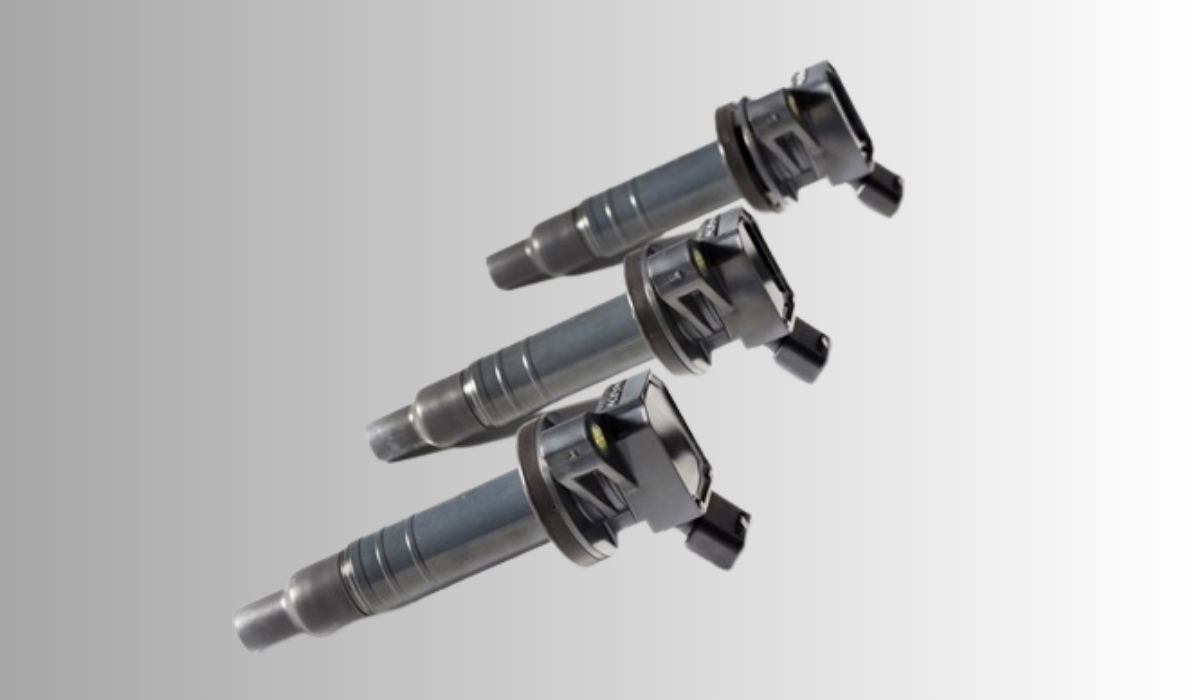The ignition coil is a crucial component in the field of automobile engineering, as it allows internal combustion engines to function properly. It is a vital part of the ignition system because it produces the high voltage needed to produce the spark that ignites the air-fuel mixture in the cylinders of the engine. For well over a century, this little but potent technology has greatly improved vehicle efficiency, dependability, and performance.
The Basics of Ignition Coils
An ignition coil is essentially an electromagnetic device that boosts the voltage from the car’s battery to the level necessary to fire the spark plugs. The primary winding and secondary winding are the two winding circuits that make up an induction motor, and they’re typically coiled around an iron core.
Low voltage current from the battery flows through the primary winding’s few hundred turns of thick wire. When the key is turned on, an electromagnetic field is generated by the primary winding. When the ignition is turned off, the magnetic field quickly collapses, causing a large voltage to be induced in the secondary winding.
This induced voltage is amplified to several thousand volts by the secondary winding, which consists of thousands of turns of thin wire. This spark is then produced by the spark plugs. The ignition of the air-fuel mixture is precisely timed by the spark plug, starting the combustion process and driving the car forward.
The Importance of Ignition Coils
For a number of reasons, ignition coils are a must-have. First, they supply the high voltage needed to spark the air-fuel mixture under control by bridging the gap at the spark plugs. By ensuring that fuel is properly ignited, the engine runs more smoothly, produces fewer emissions, and provides better performance overall.
Second, ignition coils aid in saving gas. By ensuring that the air-fuel mixture is burned completely, they help maximize fuel efficiency and minimize emissions. In addition to helping the planet, better gas mileage also results in financial savings for car owners.
Ignition coils are also essential for a dependable vehicle start. When starting the engine from cold, they create the initial spark that ignites the fuel. A malfunctioning ignition coil can cause misfires, rough idling, and engine starting problems, reducing the vehicle’s dependability.
Evolution of Ignition Coils
Ignition coils have come a long way since their inception. The “coil-on-plug” system was the conventional method of ignition, in which a single coil fed high voltage directly into each spark plug. But technology has progressed to the point where each cylinder has its own ignition coil. Advantages of this “coil-on-plug” or “direct ignition” method include better timing accuracy, lower energy losses, and better diagnostics.
The materials utilized in ignition coils have also advanced greatly. Newer types use epoxy resin to encase the windings, but older ones often used oil-filled canister-style coils. This not only increases the ignition coil’s longevity by improving its resilience and electrical insulation, but it also helps disperse heat more efficiently.
Maintaining Ignition Coils
Ignition coils require routine servicing to function properly and last as long as possible. Some fundamental procedures are:
Regular inspections: Inspect the ignition coil and its wiring for any deterioration, damage, or corrosion. Quickly swap out any broken parts.
Clean connections: Make sure there is no oxidation or dirt on the coil connections. This aids in preventing voltage losses and keeping electrical connections firm.
Timely spark plug replacement: Ignition coils can be overworked if spark plugs are worn or contaminated. Spark plugs should be changed at regular intervals to reduce wear on the coil.
Avoid overheating: Ignition coils might lose efficiency if subjected to too much heat. Make sure the engine is properly cooled, and fix any problems with the cooling system right away.
Conclusion
The ignition coil is a vital part of every internal combustion engine because it generates the high voltage needed to start the combustion process. Its capacity to provide a consistent spark at the spark plugs enhances engine performance, reduces fuel consumption, and makes the engine easier to start. Ignition coils have improved accuracy, longevity, and diagnostic capabilities because to technological development. Vehicle owners may extend the life of their engines and keep them running smoothly and efficiently if they understand the significance of ignition coils and undertake routine maintenance on their vehicles.











